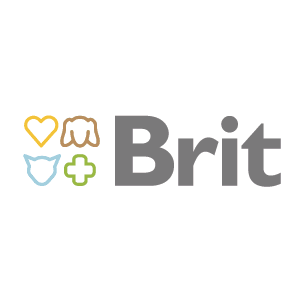- Welcome...
- Venue & Loc
- Acces Routes
- COMPETITORS
- Judges
- Ring Stewards
- Partners
- Agenda
- Regulations
- Stands
- Accommodation
- Contact us
- Travelling with pet animals to CZ


Dogs with cropped ears are not allowed to enter the event!
Dogs with docked tails can participate without restrictions.
Veterinary conditions
- All dogs that want to participate at the event must be clinically healthy.
- Dogs must be immune against rabies pursuant to valid regulations.
- Dogs from EU member states and Third World countries must meet the conditions given by regulations of the European Parliament and Council of Europe 998/2003 of 26.5.2003.
Cropped dogs
The dogs with cropped ears are not allowed to enter the stadium - as it is probibited by law in the Czech Republic.

Travelling with dogs from the EU Member States to the Czech Republic
FROM 29 DECEMBER 2014
For travelling with dogs, cats and ferrets to the Czech Republic from the EU Member States the following requirements must be met:
1. Identification of animals
Dogs, cats and ferrets must be identified by implanting of a transponder(microchip). The identification shall be performed by the private veterinarian. Only transponders (microchips) complying with the ISO standards for microchips and reading devices – ISO 11784 and ISO 11785 can be used for the identification. Where the transponder does not comply with these requirements, the owner or the authorised person must provide the means necessary for reading that transponder at any check.
The identification of animals using tattoos is recognised only when the tattoo is clearly readable and was demonstrably done before 3rd July 2011.
Animals must be identified prior to the anti-rabies vaccination and issuance of the passport.
2. Pet passport
Dogs, cats and ferrets must be accompanied by the pet passport (hereinafter referred to as the „passport“). The passport is a unified document which is valid in all Member States of the European Union. Each passport bears a code of the country and a serial number.
NOTICE
Dogs, cats and ferrets originating from Croatia may by 30 June 2016 travel with the passport complying with Decision No 2003/803/ECbearing on the front cover the Croatian national emblem and words “Republika Hrvatska”. The passport is recognised when it was issued to the owner by the official veterinarian in Croatia by 30 June 2014 at the latest.
3. Anti-rabies vaccination
Dogs, cats and ferrets over twelve weeks of age must receive anti-rabies vaccination. The anti-rabies vaccination must be performed using an inactivated vaccine of at least one international antigenic unit per dose (WHO standard) or a recombinant vaccine. The vaccine administered in a Member State must have marketing authorisation.
For the purposes of travelling with pets, an anti-rabies vaccination shall be considered as valid:
a. 21 days from the date of completion of the vaccination protocol required by the manufacturer for the primary vaccination,
or
b. from the date of re-vaccination where the vaccine is administered within the period of validity indicated by the manufacturer of a previous vaccination. However, such re-vaccination shall be considered as a primary vaccination in the absence of the animal health certificate attesting the previous vaccination.
4. Derogations from compulsory anti-rabies vaccination for young dogs, cats and ferrets entering the territory of the Czech Republic
4.1. Entry of young dogs, cats and ferrets under 12 weeks of age
The Czech Republic shall authorise the entry of dogs, cats and ferrets under 12 weeks of age and which have not received anti-rabies vaccination yet from all EU Member States if the following requirements are met:
4.1.1. The young animals are accompanied by their mother on whom still depend
a. each animal must be identified using a transponder (microchip) complying with the ISO standards for microchips and reading devices – ISO 11784 and ISO 11785. The identification using tattoos is recognised only when the tattoo is clearly readable and was demonstrably done before 3rd July 2011;
b. each animal must be accompanied by the pet passport;
c. the mother must have a valid anti-rabies vaccination attested in the pet passport and performed prior to the birth of the young animals in question.
4.1.2. Young animals of the age between 8 and 12 weeks, travelling without their mother
a. the young animal is identified using a transponder (microchip) complying with the ISO standards for microchips and reading devices – ISO 11784 and ISO 11785;
b. the young animal is accompanied by the pet passport,
c. the owner or the authorised person shall submit signed declaration stating that the young animal since its birth to the non-commercial movement has not had any contacts with wild animals of the species susceptible to rabies.
Form of the declaration in Czech-English version.
4.2. Entry of young dogs, cats and ferrets of the age between 12 and 16 weeks
The Czech Republic shall authorise the entry of young animals of the age between 12 and 16 weeks which have received an anti-rabiesvaccinationeven though the vaccination has not became valid yet (i. e. that 21 days have not elapsed since the vaccination), provided that the following requirements are met:
a. the young animal is identified using a transponder (microchip) complying with the ISO standards for microchips and reading devices – ISO 11784 and ISO 11785;
b. the young animal is accompanied by the pet passport,
c. the young animal has received an anti-rabies vaccination;
d. the owner or the authorised person shall submit signed declaration stating that the young animal since its birth to the non-commercial movement has not had any contacts with wild animals of the species susceptible to rabies.
Form of the declaration in Czech-English version
NOTICE
When young dogs, cats or ferrets are after the import to the Czech Republic transported to another EU Member State, their anti-rabies vaccination must be already valid (except for the case of transit through the territory of the Czech Republic).
5. Note:
At the trade in dogs, cats and ferrets, the animals must also be accompanied by the animal health certificate issued by the official veterinarian, and by an attestation of the private veterinarian, stating that a clinical examination has been performed within 48 hours before the movement and the animals have been in a good state of health and fit for the transport to the place of destination.
These requirements for trade must be fulfilled also at the non-commercial movement if:
– the owner or the authorised person travels with more than five animals which are not registered either to participate in competitions, exhibitions or sporting events or in training for such events;
– the pet animal is at the non-commercial movement not accompanied by the owner or the authorised person (i.e. the animal travels “alone”).
Travelling with dogs from listed third countries to the Czech Republic
Listed third countries (i.e. countries listed in Part 1 and 2 of Annex II to Commission Implementing Regulation (EU) No 577/2013 pursuant to Art. 13 (1) and (2) of Regulation (EU) No 576/2013 of the European Parliament and of the Council)
In order to enable the return of a Czech citizen which travelled to a listed third country with his/her animal back to the territory of the EU or, at the import of an animal, the following requirements must be met:
1. Identification of animals
Dogs, cats and ferrets must be identified by implanting of a transponder (microchip). The identification shall be performed by the authorised veterinarian of the country of dispatch. Only transponders (microchips) complying with the ISO standards for microchips and reading devices – ISO 11784 and ISO 11785 can be used for the identification. Where the transponder does not comply with these requirements, the owner or the authorised person must provide the means necessary for reading that transponder at any check.
When dogs, cats or ferrets are identified using tattoos and the tattoos are clearly readable and were demonstrably done before 3rd July 2011, it is not necessary to implant transponders.
Animals must be identified prior to the anti-rabies vaccination!
2. Anti-rabies vaccination
Dogs, cats or ferrets over twelve weeks of age must receive anti-rabies vaccination. The vaccination in a third country is performed by the authorised veterinarian. The anti-rabies vaccination must be performed using an inactivated vaccine of at least one international antigenic unit per dose (WHO standard) or a recombinant vaccine.
The vaccine administered in a Member State must have marketing authorisation; when administered in a third country, it must be approved by the competent authority or have marketing authorisation issued by that authority and must comply with the requirements established by the OIE.
For the purposes of travelling with pets, a vaccination against rabies shall be considered as valid:
a. 21 days from the date of completion of the vaccination protocol required by the manufacturer for the primary vaccination,
or
b. from the date of re-vaccination where the vaccine is administered within the period of validity indicated by the manufacturer of a previous vaccination. However, such re-vaccination shall be considered as a primary vaccination in the absence of the animal health certificate attesting the previous vaccination.
3. Animal health certificate or European pet passport
Dogs, cats or ferrets originating from a third country must be at their import accompanied by the animal health certificate for the non-commercial movement of dogs, cats or ferrets (in accordance with the model certificate laid down in Commission Implementation Regulation (EU) No 2016/561) which must had been issued prior to the movement by the official veterinarian of exporting territory or third country or by the authorised veterinarian and subsequently approved by the competent authority of the territory or third country of dispatch.
Furthermore, the pet animal must be accompanied by written declarationsigned by the owner or the authorised person attesting that the pet animal is to the EU moved within the non-commercial movement.
Anti-Echinococcus treatment, i.e. the treatment against the parasite Echinococcus multilocularis, as mentioned in Point II.4 of the animal health certificate, is not required by the Czech Republic.
The certificate is valid for 10 days from the date of its issue by the official veterinarian of exporting country until the date of a check at the place of entry into the EU. For the purpose of further movement into other Member States, the certificate is valid for a total of 4 months or until the date of expiry of the validity of the anti-rabies vaccination or until conditions relating to animals under 16 weeks of age referred to in point II.3 of the animal health certificate cease to apply, whichever date is earlier.
In the case of the re-entry of dogs, cats or ferrets from a third country to the EU, the European pet passport shall be used instead of the animal health certificate. When animals are moved from Andorra, Switzerland, Faeroe Islands, Gibraltar, Greenland, Iceland, Liechtenstein, Monaco, Norway, San Marino or the Vatican, the animals may be accompanied by the passport pursuant to the model contained in Part B of Annex III to Commission Implementing Regulation (EU) No 577/2013.
Note:
At travelling with more than 5 dogs, cats or ferrets, when the conditions for granting derogation are not fulfilled, at trade in such animals or when the animals do not fulfil the conditions for the non-commercial movement (see the definition of the non-commercial movement), the animals must be accompanied by the animal health certificate for the import of dogs, cats and ferrets to the European Union. In these cases, the animals must come from the listed third countries or countries referred to in Part 1 of Annex II to Regulation (EU) No. 206/2010 or countries referred to in Annex I to Decision 2004/211/ES. For more information, we recommend to contact the State Veterinary Administration via the addresse podatelna@svscr.cz.
4. Derogations from compulsory anti-rabies vaccination for young pet animals (dogs, cats and ferrets)
In accordance with Regulation (EU) No 576/2013 of the European Parliament and of the Council, the Czech Republic can authorise imports of young dogs, cats and ferrets from listed third countries, provided that the following requirements are met:
– the animals travel within the non-commercial movement;
– the animals are younger than 12 weeks of age and have not received an anti-rabies vaccination
or are of the age between 12 and 16 weeks, have received an anti-rabies vaccination but do not yet comply with the requirements for the validity of vaccination;
– the owner or the authorised person shall submit signed declaration stating that the young animals since their birth to the non-commercial movement have not had any contacts with wild animals of the species susceptible to rabies
or the pet animals are accompanied by their mother on whom they still depend and from the identification document accompanying their mother it can be established that, before their birth, the mother received an anti-rabies vaccination which complied with the requirements for the validity of vaccination.
The importer must at least 15 days prior to estimated import apply at the Central Veterinary Administration of the State Veterinary Administration for the establishment of import animal health conditions.
Completed application can be sent by e-mail to the address:epodatelna@svscr.cz, or send by mail to the contact postal address of the SVA.
Imports of young animals (dogs, cats and ferrets) from Andorra, Switzerland, Faeroe Islands, Gibraltar, Greenland, Iceland, Liechtenstein, Monaco, Norway, San Marino and the Vatican shall subject to the above mentioned rules.
Travelling with dogs, cats and ferrets of the age of 12 weeks or between 12 and 16 weeks of age from other than listed third countries to the territory of the Czech Republic is not authorised.
5. Derogations applying to transits
In the case of transit of dogs, cats and ferrets from listed third countries through other third countries to the EU, the performance of rabies antibody titration test is not required when the owner or the authorised person submits written declaration stating that the animals concerned have not had any contacts with wild animals of the species susceptible to rabies during the transit and that they are safely secured in the means of transport or premises of an international airport.
Travelling with dogs from non-listed third countries to the Czech Republic
(i. e. countries not listed in Part 1 and 2 of Annex II to Commission Implementing Regulation (EU) No 577/2013 pursuant to Art. 13 (1) and (2) of Regulation (EU) No 576/2013 of the European Parliament and of the Council)
In order to enable the return of a Czech citizen which travelled to this third country with his/her animal back to the territory of EU or, at the import of an animal, the following requirements must be met:
1. Identification of animals
Dogs, cats or ferrets must be identified by implanting of a transponder (microchip). The identification shall be performed by the authorised veterinarian of the country of dispatch. Only transponders (microchips) complying with the ISO standards for microchips and reading devices – ISO 11784 and ISO 11785 can be used for the identification. Where the transponder does not comply with these requirements, the owner or the authorised person must provide the means necessary for reading that transponder at any check.
Where dogs, cats or ferrets are identified using a tattoo and the tattoo was done not later than 2nd July 2011, a transponder (microchip) cannot be applied, provided that the tattoo is clearly readable and was demonstrably done before 3rd July 2011.
Animals must be identified by implanting of a transponder (microchip) or by a clearly readable tattoo prior to the anti-rabies vaccination!
2. Anti-rabies vaccination
Dogs, cats or ferrets over twelve weeks of age must receive the anti-rabies vaccination. The vaccination in a third country is performed by the authorised veterinarian. The anti-rabies vaccination must be performed using an inactivated vaccine of at least one international antigenic unit per dose (WHO standard) or a recombinant vaccine.
The vaccine administered in a Member State must have marketing authorisation; when administered in a third country, it must be approved by the competent authority or have marketing authorisation issued by that authority and must comply at least with the requirements established by the OIE.
For the purposes of travelling with pets, an anti-rabies vaccination shall be considered as valid:
a. 21 days from the date of completion of the vaccination protocol required by the manufacturer for the primary vaccination,
or
b. from the date of re-vaccination where the vaccine is administered within the period of validity indicated by the manufacturer of a previous vaccination. However, such re-vaccination shall be considered as a primary vaccination in the absence of the animal health certificate attesting the previous vaccination.
3. Animal health certificate or European pet passport
Dogs, cats or ferrets originating from a third country must be at their import accompanied by the animal health certificate for the non-commercial movement of dogs, cats or ferrets (in accordance with the model certificate laid down in Commission Implementation Regulation (EU) No 2016/561) which must had been issued prior to the movement by the official veterinarian of exporting territory or third country or by the authorised veterinarian and subsequently approved by the competent authority of the territory or third country of dispatch.
Furthermore, the pet animal must be accompanied by written declarationsigned by the owner or the authorised person attesting that the pet animal is to the EU moved within the non-commercial movement.
Anti-Echinococcus treatment, i.e. the treatment against the parasite Echinococcus multilocularis, as mentioned in Point II.4 of the animal health certificate, is not required by the Czech Republic.
The certificate is valid for 10 days from the date of its issue by the official veterinarian of exporting country until the date of a check at the place of entry into the EU. For the purpose of further movement into other Member States, the certificate is valid for a total of 4 months or until the date of expiry of the validity of the anti-rabies vaccination or until conditions relating to animals under 16 weeks of age referred to in point II.3 of the animal health certificate cease to apply, whichever date is earlier.
In the case of the re-entry of dogs, cats or ferrets from a third country to the EU, the European pet passport shall be used instead of the animal health certificate.
Note:
At travelling with more than 5 dogs, cats or ferrets, when the conditions for granting derogation are not fulfilled, at trade in such animals or when the animals do not fulfil the conditions for the non-commercial movement (see the definition of the non-commercial movement), the animals must be accompanied by the animal health certificate for the import of dogs, cats and ferrets to the European Union.In these cases, the animals must come from countries referred to in Part 1 of Annex II to Regulation (EU) No. 206/2010 or countries referred to in Annex I to Decision 2004/211/ES. For more information we recommend to contact the State Veterinary Administration via the address epodatelna@svscr.cz.
4. Rabies antibody titration test
Dogs, cats or ferrets must undergo rabies antibody titration test. For such testing, the veterinarian shall take a blood sample 30 days after the anti-rabies vaccination at the earliest and send it to an approved laboratory.
The list of approved laboratories can be found on the official website of the European Commission:
http://ec.europa.eu/food/animals/pet-movement/approved-labs_en
The minimum level of protective antibodies against rabies must be equal to or greater than 0.5 IU/ml.
The rabies antibody titration test must be performed on a sample taken not less than 3 months before the date of the non-commercial movement of the animal to the territory of the EU or the transit through a territory or third country other than listed third countries. The three-month period shall not apply to the re-entry of an animal whose passport certifies that the rabies antibody titration test was performed, with a satisfactory result, before the animal left the territory of the EU. Even though the result of rabies antibody titration test is indicated in the passport or certificate, it is necessary to have at travelling abroad also the relevant laboratory protocol (or its attested copy, respectively) containing results of the test available.
The rabies antibody titration test needs not to be renewed in an animal subjected to that testing with a satisfactory result and then re-vaccinated against rabies always during the period of validity of the previous vaccination.
Derogation
In the case of transit of dogs, cats and ferrets from listed third countries through other third countries to the EU, the performance of rabies antibody titration test is not required when the owner or the authorised person submits written declaration stating that the animals concerned have not had any contacts with wild animals of the species susceptible to rabies during the transit and that they are safely secured in the means of transport or premises of an international airport.
Approved laboratory for the detection of antibodies against rabies in the Czech Republic
The National Reference Laboratory for Rabies at the State Veterinary Institute in Prague is the only approved laboratory for the detection of antibodies against rabies in the Czech Republic.
Address of the laboratory
State Veterinary Institute in Prague
National Reference Laboratory for Rabies
Sídlištní 136/24
165 03 Praha 6 – Lysolaje
Tel, fax: 251 031 271
vzteklina@svupraha.cz
www.svupraha.cz
When a sample is sent to the Czech Republic from a third country, the consignor thereof must in advance ask the Central Veterinary Administration of the State Veterinary Administration for the establishment of animal health import conditions. For more information we recommend to contact the State Veterinary Administration via the address epodatelna@svscr.cz.



